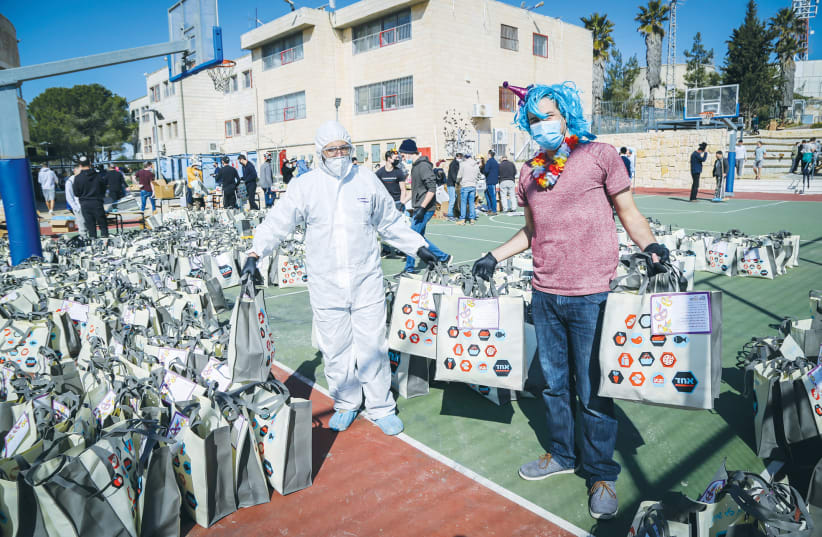But, the meaning is to walk after the attributes of the Holy One, blessed be He. As He clothes the naked, for it is written: “And the Lord God made for Adam and for his wife coats of skin, and clothed them, so do thou also clothe the naked.” The Holy One, blessed be He, visited the sick, for it is written: “And the Lord appeared unto him by the oaks of Mamre, so do thou also visit the sick. The Holy One, blessed be He, comforted mourners, for it is written: “And it came to pass after the death of Abraham, that God blessed Isaac his son, so do thou also comfort mourners.” The Holy one, blessed be He, buried the dead, for it is written: “And He buried him in the valley, so do thou also bury the dead.”
Thus, when we give to the poor, we are not only giving charity but we are making ourselves more God-like. This is what Maimonides directs us to do on the holiday of Purim. He writes in the Mishne Torah: It is preferable for a person to be more liberal with his donations to the poor than to be lavish in his preparation of the Purim feast or in sending portions to his friends. For there is no greater and more splendid happiness than to gladden the hearts of the poor, the orphans, the widows, and the converts. One who brings happiness to the hearts of these unfortunate individuals resembles the Divine Presence, which Isaiah describes as having the tendency “to revive the spirit of the lowly and to revive those with broken hearts.”
So, when we give to the needy, we imitate God. We must actively think about this every day but certainly on Purim. We are wont to give creative mishloah manot (Purim baskets of goods) and have lavish seudot (feasts) but are we as attentive as we should be to matanot la’evyonim (gifts to the poor)? Do we spend as much on imitating the divine as we do on mishloah manot and the seudah combined? This is the most important task.
We do something else when we take matanot la’evyonim seriously: we bring more unity and brotherhood to the Jewish people. When we give charity pleasantly, we create connections as well as more social equality. Haman felt that he could attempt to destroy the Jewish people because they were “spread and scattered.” When we unite and come together, we foil the plots of those who would destroy us. Jewish unity is very much needed at the present time.
While this is true every Purim, it is more necessitated this year due to the coronavirus crisis. Many needy are more needy. Many have lost their jobs or have taken a large cut in salary. We must be sensitive to their needs as we celebrate ourselves.
Please take the time to consider an appropriate gift on this Purim. Over this past year, it has often been spoken about what we can learn and take away from coronavirus. Being sensitive to the needs of our fellow human beings is certainly at the top of the list.
Rabbi David Fine is the founder and dean of the Barkai Center for Practical Rabbinics. Rabbi Avrohom Leventhal is the executive director of Lema’an Achai.
